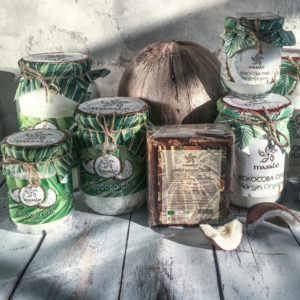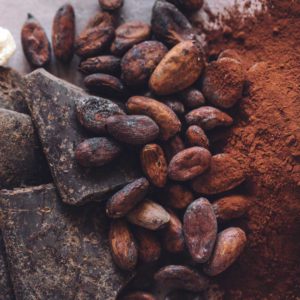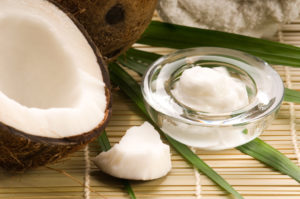The ancient Chinese believed that cinnamon emits the vibrations and aroma of immortality, inhaling which people live longer and look younger. Cinnamon also helps to get rid of self-doubt, increase self-esteem and acquire magnetic attraction in the eyes of the opposite sex. So how to make the right choice in favor of real Ceylon cinnamon and should we believe the rumors about the dangers of this spice?
From time to time you have to hear the phrase: “I don’t like cinnamon.” In principle, it is not surprising, because with a probability of 90% you have never tried real Ceylon cinnamon in your life, and the package of “cinnamon” on the counter of the store near your house or in the market is filled with cassia. Why so? Well, unfortunately, cassia is considered a low-grade spice and therefore much cheaper than real cinnamon, making it a better choice for large chain stores that often sacrifice product quality for price.
We would generally not recommend buying spices from unverified sellers, and in the case of buying cinnamon, prefer not ground spices (where dishonest people often add ground cloves at best, and sand at worst), and cinnamon sticks – because in this form, cassia and Ceylon cinnamon can be distinguished immediately.
Everything is simple here.
- If a cinnamon stick is light brown or beige in color, consists of many thin, fragile layers and looks somewhat like a rough Cuban cigar, it is real cinnamon.
- If in front of you are dark brown or dark red “horns”, smooth and quite strong, then it is cassia. Our acquaintance once indignantly compared cinnamon, which was passed off as cassia, with a chair leg – a rather comprehensive description, but we would not be so categorical. Both varieties of this spice have their fans and haters, and they have their place.

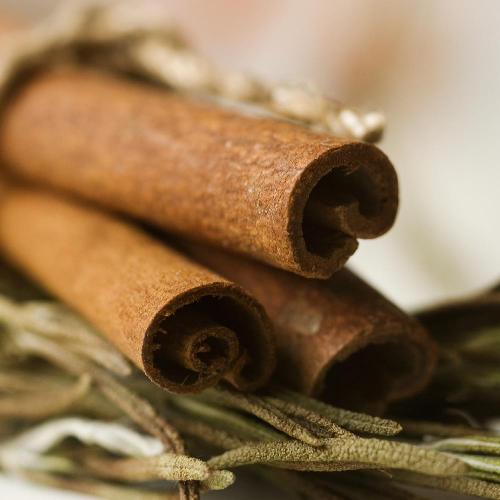
The second difference is considered to be the pronounced spicy, partly peppery smell and bitter aftertaste of cassia, which determine its low taste qualities.
The aroma of real Ceylon cinnamon is mild and sweet, just like its taste. By the way, connoisseurs use Ceylon cinnamon as a natural sweetener – just add it to morning porridge, smoothies or baked goods. True Ceylon cinnamon is really sweet. Everyone should try it at least once in their life, and you will never choose a fake again.
As for the chemical composition of these two spices, the saturation of noble Ceylon cinnamon with eugenol, which has an analgesic effect, is a natural antiseptic and antioxidant, is most often mentioned. An integral part of both true cinnamon and cassia is coumarin – in medicine it is used as an anticoagulant. For comparison, the concentration of this compound is approximately 0.02 g/kg in Ceylon cinnamon, and 2 g/kg in cassia. However, we do not share the panicked tendencies of some sources who claim “a lethal dose of coumarin contained in more than three sweets with cinnamon or cassia”.
First of all, at the moment there is not enough research on possible harm from these spices, and the results of previously conducted scientific tests confirm the positive effect of the bark of the cinnamon tree on the human body. In order to feel the negative effects of any spice, you must have an individual intolerance to these products, or you must regularly consume them in cups rather than spoons. And if we, adults in Masale, most often use our Ceylon cinnamon in baking, coffee, cocoa and other drinks, then children enjoy it instead of caramels – just show. And they feel great at the same time.
Secondly, cinnamon has been used as an ingredient in medicinal preparations throughout human history. The Phoenicians delivered Chinese cinnamon called “kasi” at a speculative price, and Ceylon cinnamon – under the name “kikamoi” (a tree that has an aromatic smell). Of course, the popularity of cinnamon could be due to the rarity and expensiveness of the spice, but since the time of Ancient Egypt and before, there is a lot of documented information about the medicinal properties of cinnamon in addition to its rarity.
Cinnamon gets its aroma and taste from essential oils in the bark of the tree, mainly from the complex valuable formaldehyde. Researchers believe that this compound is responsible for most of cinnamon’s medicinal properties. For example, cinnamon helps stabilize and lower blood sugar levels. Cinnamon has also been found to lower levels of “bad” LDL cholesterol and triglycerides, while “good” HDL cholesterol remains stable. And plus the already mentioned properties of cinnamon as a natural anticoagulant. When these several important factors are combined, and you use a pinch of cinnamon at least once a day, the risk of developing cardiovascular diseases really decreases.
In addition, there are confirmed research results that regular consumption of cinnamon in food helps to fight various types of parasites, bacteria and infections, in particular, to treat respiratory tract infections caused by fungi. And that’s not all.
Cinnamon also has magical properties
- The ancient Chinese believed that cinnamon emits vibrations and the aroma of immortality, when inhaled, which people live longer and look younger.
- Cinnamon also helps to get rid of self-doubt, increase self-esteem and acquire a magnetic attraction in in the eyes of the opposite sex. It is not for nothing that cinnamon oil is often used in perfumery – the same Amarige Mariage Givenchy, by the way.
- Cinnamon can provide an invaluable service to those who are dissatisfied with their financial situation. It is believed that money loves cinnamon, so a pinch of this spice in your wallet will steadily increase your well-being. If you can afford noble Ceylon cinnamon, then it speaks to your good taste and that money ALREADY loves you. Well, if you haven’t yet had time to get to know our spice, it’s time before the New Year to try it not only by taste, but also to use it in magical rituals.
